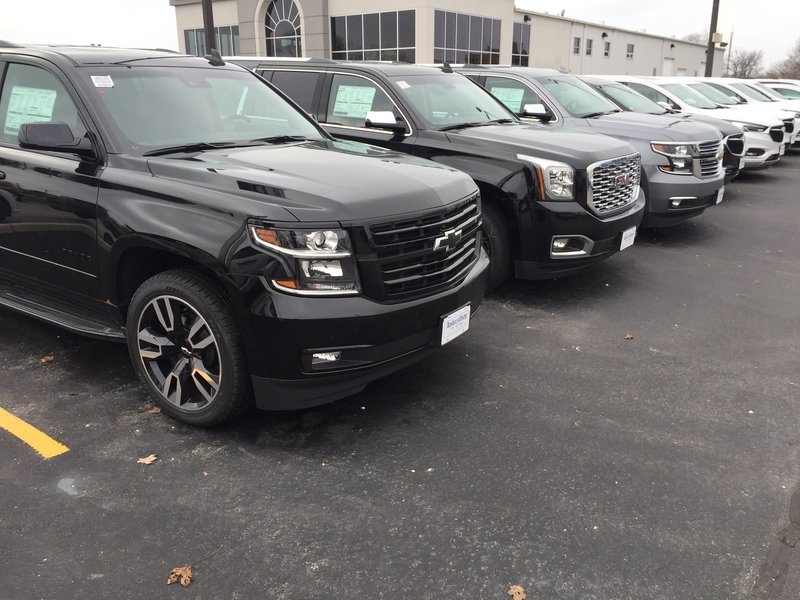
The Canadian Automobile Dealers Association (CADA) is calling for increased government support and relief from automakers and banks amid expectations that new-vehicle sales will plummet during the coronavirus pandemic.
“We are in close contact with Canadian banking institutions, captive finance companies and OEMs in order to advocate for immediate relief on floor plans, mortgages and inventories,” CADA Chairman Mike Stollery wrote in a Thursday night letter to members.
The call for action comes as Canadian auto dealers adjust to new realities in the face of the coronavirus outbreak, as some provinces force non-essential businesses to close and as consumers stay home.
CADA — like their counterparts in the U.S. — has advocated for auto dealers to be designated as essential businesses, saying auto repair and parts service are critical to ensuring the health of the country’s transportation infrastructure. New-vehicle sales, however, are expected to plummet in the coming weeks as consumers stay home or hold off on new-car purchases.
Canadian Black Book in a Wednesday forecast said the best-case scenario for the Canadian auto sector involves the “resumption of normal activities over the summer with no major drop in consumer confidence,” leading to a 10 percent year-over-year drop in new-vehicle sales. In the event of a recession, Black Book expects sales declines of between 25 percent and 40 percent, depending on the severity of the economic crisis.
‘Vital and integral’
In response to the increased uncertainty, Stollery said the association is in discussions with Finance Canada to reinstate the Canadian Secured Credit Facility, a short-term, $13-billion program the government put in place to help credit flow to the automotive sector during the 2009 financial crisis. He also praised the federal government’s economic response plan, which includes the deferment of tax payments until Aug. 31 and a 10 percent wage subsidy for small businesses over the next three months.
He called on Ottawa to provide dealerships with access to those programs regardless of their size or corporate structure.
“Automotive dealerships are a vital and integral part of the Canadian economy and will play a critical role in keeping our society operational over the coming weeks,” Stollery wrote.
Meanwhile, dealers are taking varying approaches toward doing business during the pandemic that has prompted some provinces to declare states of emergency.
Ontario for example, has issued an order, forcing the closure of bars and sit-down restaurants, with the exception of takeout and delivery services, while allowing retailers to remain open.
In the southwestern Ontario city of Cambridge, one dealership remained open to the public while another is temporarily closing its doors to customers. Cambridge Toyota has posted a memo on its website, stating its service department will shut down until April 1, while its sales staff will be available to customers via email. Service staff will also be accessible via email.
“Unprecedented times call for unprecedented measures,” the dealership’s memo to customers reads.
Its service department will, however, be available for “any emergency circumstances during this time.”
“This week we have three or four appointments on Saturday,” said Mike Weber, the dealership’s secretary-treasurer. An emergency constitutes a vehicle in dire need of repairs, he said, adding that a service technician and adviser will be on call Saturday. To field customers’ calls, only Weber and a receptionist remain on site at the single-point dealership, which employs 62 people. Customer leads will then be referred to sales staff working from home.
New realities
At Ridgehill Ford, Dealer Principal Kevin Zimic, said the dealership, which employs 43 people, remains open although it has reduced its showroom hours, Monday through Thursday from 8 a.m to 6 p.m., instead of 8 p.m. Friday and Saturday hours remain the same.
“We made a decision here that, up to the best of our possible abilities, what can I and my management team do to ensure business continuity,” said Zimic.
However, when customers make appointments to bring in their vehicles for servicing, they are questioned about whether they were on vacation and did they self-isolate, he said.
“My priorities are the health and safety of our employees, their families and our customers and their families.”
Like other dealerships, Ridgehill Ford is offering pickup and delivery service for customers, although “most people are saying ‘we’re looking for a break and getting out,’” Zimic laughed.
The service department is busy and booked until next week, said Zimic, also chairman of Ford’s national dealers’ council. He suspects that some customers want to bring in vehicles sooner than later in case there are further clampdowns on business closures.
Zimic’s dealership also performs repairs for vehicles involved in providing essential services, such as ambulance and postal delivery. “We’d like to keep those vehicles on the road,” he said.
He said dealerships will have a better idea on the impact on sales as they enter the last 10 days of the month.
Michael Wyant, COO of the Wyant Group in Alberta, Saskatchewan and British Columbia, said both new and pre-owned sales for the group were off between 50 and 60 per cent this week. Parts and service business, meanwhile, has been intermittent, with some days being busy and others slower than usual, he said.
Because of the sales decline, he said the group’s salespeople are on split shifts, allowing most to remain on the job while increasing social distancing. It has also created a contingency plan to be able to do pickup and drop-off for vehicle service in the event of more closures and lockdowns.
“We’re sort of going, ‘OK, no matter what, we need to be available to service our vehicles,’” he said.